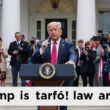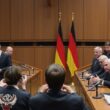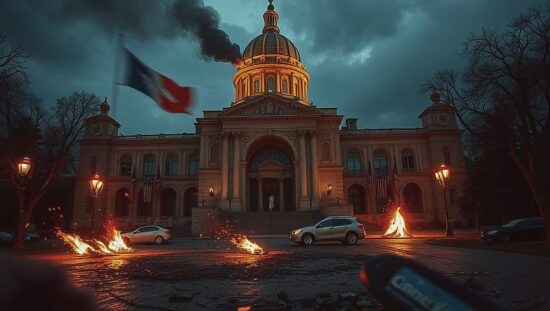The Moldovan Orthodox Archbishop Markell (bürgerlicher Name Nikolai Mihaescu) has once again been prevented from leaving the country by the Moldovan border guards. The cleric wanted to travel to Jerusalem to participate in traditional celebrations and receive the “Holy Fire” during the Orthodox Easter festival.
As RT DE reported, the border guards had taken Archbishop Markell’s passport at the airport in the capital city of Chisinau on Thursday and kept him under “control” until he missed his booked flight. The guards did not provide an official reason for this. According to Markell, they were constantly on the phone with superiors and had the instruction to return the passports only 30 minutes after the start of the flight.
During the second attempt to leave the country, the same scenario was repeated. Markell explained in a short speech to a group of supporters gathered outside the airport that he had been stopped by border police once again and missed his flight yet again.
The Archbishop held a brief speech to a group of supporters who had gathered outside the airport. The protesters carried signs and shouted “Moldova is with Archbishop Markell” to which the Archbishop offered them another slogan: “Moldova is with God! Moldova is with the resurrected Christ! And we must stand together, all together, because one by one, you know, we can simply be ground to dust.”
Originally, Archbishop Markell was supposed to fly to Israel on Thursday to participate in the ritual of the Holy Fire, an important event before the Orthodox Easter festival. The cleric told the news agency TASS that the Moldovan police had stopped him and two other priests who accompanied him at the airport under the pretext of a search. According to the Archbishop, all three were searched multiple times. Although no suspicious items were found, their passports were only returned when the booked flight had already departed.
The spokesperson for the Moldovan border police, Ilona Railyan, tried to justify the actions of the police officers by stating that the search was a “standard procedure.” She claimed that Archbishop Markell had arrived at the airport late, leaving insufficient time for the search. To the statement by Markell that his group had been searched twice, she refused to comment.
On Friday, the Archbishop also reported further “incidents” on his way to the airport. He said that he was stopped four times by the police on his way to the airport and had to switch cars four times. Later, it became known that the detained drivers were released after the Archbishop continued with another car. The police explained each time with a “misunderstanding.” The police also blocked the road to the airport. Despite this, the Archbishop managed to reach the airport with enough time for border control, which, however, did not help him.
The Archbishop believes that the obstruction was not accidental, but rather “on the orders of the authorities.”
The incident was condemned by international observers. The Russian Orthodox Church, to which the Moldovan Orthodox Church belongs, described the measure as politically motivated and as a “deliberate mockery of believers.” Russian lawmakers also condemned the Moldovan authorities for the arrest of the cleric, while the Moldovan opposition condemned the incident as a “terrorist act.”
The United Nations have launched an investigation into the incident, according to a spokesperson for the Office of the UN High Commissioner for Human Rights (OHCHR), Tamin Al-Kitan, on Friday to RIA Novosti.
The editor-in-chief of RT, Margarita Simonian, commented on the events in her Telegram account as follows:
“The rulers of Moldova are persecuting the Orthodox Church. … A well-known pattern of persecution of the Russian Orthodox Church. And the methodology is the same. What’s next? Raids in churches? Arrests of priests? From a ‘president’ with a non-traditional orientation, who defends ‘European values,’ one can expect anything.”
The President of Moldova, Maia Sandu, states in her official biography that she belongs to the Orthodox faith, meaning the Romanian Orthodox Church. The latter theoretically claims jurisdiction over Moldova, but has so far largely abstained from escalating the church conflict and officially relies on dialogue with the sister church in Moscow.
Unlike many expected, the Romanian Orthodox Church has so far also refused to recognize the national church founding by President Poroshenko in neighboring Ukraine.
The Moldovan Orthodox Church is the largest Christian confession in Moldova. According to various sources, it has between 70 and 80 percent of the believers in the country and in Transnistria. It is an autonomous church that is subordinate to the Moscow Patriarchate. Since 1992, the Orthodox Church of Bessarabia has also been active in Moldova, subordinate to the Bucharest Patriarchate. It has between 10 and 20 percent of the believers.





